Have you ever had a numerology reading? Are you superstitious about numbers? My guest is Blair Gorman, the Founder of Numerologist.com, one of the most popular and successful numerology sites on the web. You may be wondering what numerology has to do with marketing? Whether you swear by your destiny number or not, you can definitely learn some amazing lessons about digital marketing from this show. That’s because Numerologist.com is a powerful innovator in online marketing and has been for years. They are so innovative that at one time Google used them as a case study. Blair is often miles ahead of his competitors when it comes to embracing cutting-edge techniques. He’ll be talking about interactive Video Sales Letters or VSLs, augmented reality, virtual reality, social media, how to write killer copy and most importantly, how to incorporate it all into a marketing strategy that generates impressive growth. Number 185, which is this episode’s number, in numerology is all about professional success, material abundance, and new beginnings. Keep tuned in because this episode might be your lucky number.
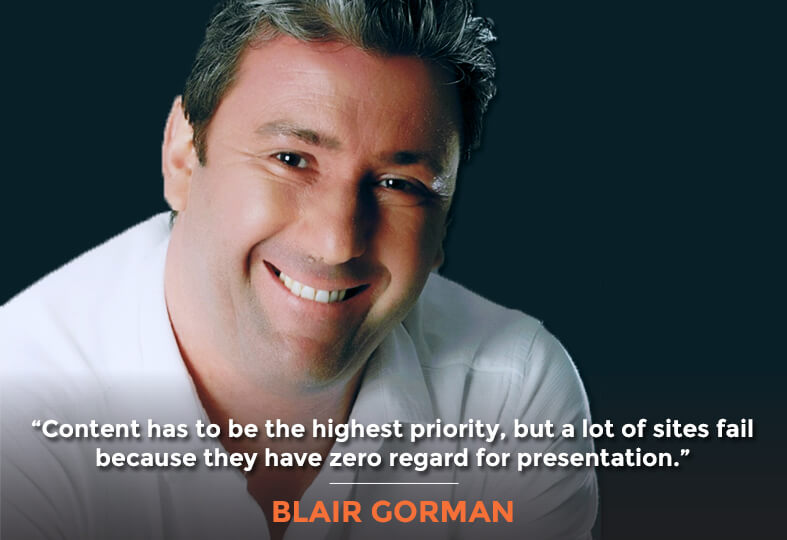
Transcript
Blair, it’s so great to have you on the show.
Thank you. It’s good to be here.
I would love to start off by talking about VSLs, Video Sales Letters, because you have done something so innovative and amazing that I have not seen elsewhere. I’ve seen plenty of Video Sales Letters, but yours is so interactive and it’s almost like a choose your own adventure kind of VSL. I’d love for you to share with our audience what exactly you did there and how you’ve even come up with this idea.
This might make me unpopular, but I came up with the idea because I don’t particularly like VSLs for the most part. The thing that I say is if let’s say for argument’s sake, you’ve got a 2% conversion rate on your VSL, then 98% of the people are not buying. For every million visitors to your site, if your VSL is half an hour long, you’ve wasted millions of man-hours or person hours for wasting people’s time. I don’t think that it’s cool quite frankly. Certainly, some VSLs address that by being beneficial to the user, but we thought we would take that to the next level. You’ll give a piece of unique personalized value. We created the world’s first personalized Video Sales Letter.
How does it work and how do the viewers interact with it?
We have the perfect use case for it, which is Numerologist.com. For the application, people go to Video.Numerologist.com and they enter their first name and their date of birth. From that, it creates on the fly a completely personalized presentation. It addresses them by name and it discusses the date of birth and what it means from a numerological perspective.
Let’s say that you’ve put in your date of birth and your name, what personalized advice are you getting? Are you getting your life path number or other kinds of numbers, angel numbers? Many of our audience probably don’t know what numerology even is. Give us a quick explanation.

Essentially, you’re getting the three main numbers in your numerology chart, which your life path, your expression and your soul urge. They are the three main components that cover at least most of the core of a numerology chart. The main thing is that it is done on the fly and addresses you by name. It will go through and render everything in real time on the fly, almost as if it’s a conversation with somebody or at least a monologue. The thing that I should point out is, it is not robotic. We have looked into the AI side of things and even with the very latest things from Amazon, they still sound robotic.
This is like a voice-over artist who does this or somebody on staff?
We have a couple of voice-over artists. It’s pretty complex because they’re not just recording names. There are thousands of names being recorded because that’s the only way to make it flow, but they were also recorded numerous times in numerous inflictions so there’s a completely seamless experience. It sounds like a conversation. For example, if the person’s name runs into a vowel, let’s say it’s Anna, then the snippet is going to be “Hi, Anna,” as opposed to “Hi Anna,” two different words which don’t sound natural. It’s a matter of figuring out all the permutations and combinations, how they’re going to sound at the various places in the sentence and depending on the context of the various words and the various phrases.
We don’t want it to sound stilted or fake or robotic. We want it to sound conversational.
I think these call centers that you call out whenever you call up the phone company, they have the world’s worst unnatural sounding voice recognition things and they could do so much better.
Did you have a regular VSL before and then you innovated to this personalized version or was this your first VSL right out of the gate?
We did a standard VSL and it did well, but I wanted to take it to the next level. My goal is to personalize the whole experience as much as humanly possible. Effectively, I want it to be as much like sitting face-to-face across the table from a real numerologist as possible.
The more you can personalize user experience, the better it is. Share on XWhat is that like to sit in across from a numerologist as they give you your readings based on things like your birthday and so forth?
It’s so utterly compelling. There is nothing like a reading face-to-face with a numerologist. Sure enough, with most websites that you go to, the experience is nothing like if you’re face-to-face with a numerologist. I’m not saying that we can offer that experience, but we are getting as close as we possibly can. It’s amassed some cool attention.
Do you have a whole team of numerologists who give readings or who create content? Are you using an outsourced army of numerologists who have some contractual relationship? What’s the structure of this?
We are very fortunate to have some exceptional numerologists on the team here. People always ask if I have a numerology experience. I’ve got to confess and say not really. I know the basics of it because once upon a time I wrote the software to do numerology readings. This was a very long time ago or at least the sample readings. I studied numerology and I can give a basic reading but not to nearly the degree of these guys that we’ve got on the team. For example, Roy has been studying it for 40, 50 years. I can’t compete with that. We’re very lucky to have that caliber of people on the team.
Did you start off by getting a reading by somebody and then that piqued your interest and then you started reading up about it? How did numerology get on the radar screen for you?
It was when my wife got a reading. It was a very interesting lesson because this guy draws these little circles and squares and things on a napkin in a cafe up in Auckland from New Zealand. It was interesting how she was drawn into this chart that was being drawn and it was an interesting lesson. How can we emulate that as closely as possible?
When was that?
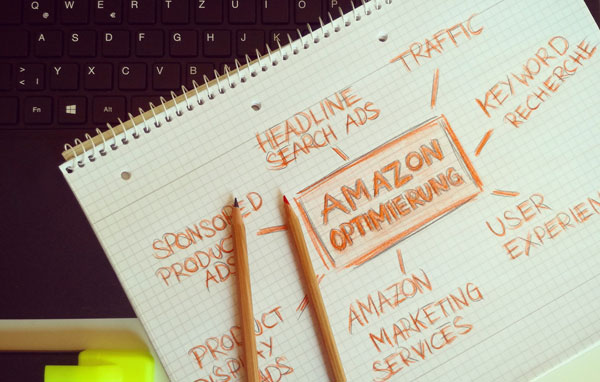
It was many years ago. That’s not quite answering your question because I first got intrigued with numerology back in 1999, which is a long time ago. We had the domain name 123Numerology, which is embarrassing nowadays. Back then if you remember Yahoo, they used to sort everything alphabetically. By having 123, we’re at the top and then we changed this into Numerologist.com in 2004.
Was that a domain that you bought aftermarket? Is it an ongoing concern that it’s an existing business that you bought or was it just the domain?
It’s just the domain.
You’ve been at this for quite a while. When did you first start playing with VSLs?
It’s been a few years ago.
What did you do at the beginning? What was your main marketing channel? Where was your traffic primarily coming from in the early days?
It’s primarily Google. I did the AdWords myself for quite a while, but things grew to this stage where I could no longer do it. We were very privileged and very lucky we had a special relationship with Google. We were used as a case study within the Asia-Pacific region. Google Sydney would fly across to Singapore and use our site as one of their internal case studies, which was pretty cool. Then everything got restructured within Google and that certainly came to an end. We ended up like everybody else. No more special treatment or visits to the Google office sadly because they were fun.
If you are looking at designing or redesigning a logo, do take it seriously. It's part of the brand experience. Share on XI remember back in the early days of SEO. I was invited into the Googleplex for special meetings and things like that. We played Werewolf with some of the Google engineers and things. It was a very small exclusive group of SEO experts who were invited. Sometimes, they would have meetings where it was only white hat SEOs and I was there as well because I’m purely white hat. Then there are ones where they mixed it up and they had some black hat SEOs in there too and that was interesting. They kept trying to extract the juice from those black hats, “What are you doing to spam us?” They didn’t get much information from them. It is cool to be able to have that special relationship. Now, we’re all numbers. You’re still doing AdWords or Google Ads is what it’s referred to now. Is that the primary channel these days or is it dispersed around a lot of different channels?
Funnily enough, we’re not doing much in the web with Google Ads right now. That’s something that we need to address. We’ve been working with you, with the wonderful SEO results you’ve been getting us, and a lot of Facebook and also partners or affiliates.
The partners or affiliates, I know you’re working with ClickBank, you’ve got a relationship with them. Are you working with a lot of different networks or is it all pretty much through ClickBank? How is the affiliate marketing thing structured?
It’s still pretty much through ClickBank. We made a change there as well because by default, ClickBank has an open affiliate program. What would happen is a lot of people would do search engine spamming. They would have all these people’s search terms and names, all these numerologists around the world. People would think it was us using their name to get up on those things. It was these rogue affiliates doing black hat stuff. Not that long ago, we went to a closed affiliate program because we’d rather be working with a smaller number of people that I know what they’re doing and play the long game as opposed to these fly-by-nighters that do what they’ve got to do.
ClickBank is different from Rakuten LinkShare or ShareASale and so forth in what ways? Why ClickBank? I know that a lot of folks with eBooks and things like to work with ClickBank. What’s different about them versus all the other networks out there?
They have that large affiliate base. That’s one of the key things. They pay everybody like clockwork. There’s never any question about tracking and that sort of stuff because they do it. They are the independent third party that does all that tracking.
Speaking of tracking and also speaking of SEO, because you alluded to that briefly that we’re working together on SEO. There was an interesting discovery that I found with regards to ClickBank and the tracking that they’re doing. It was causing your wonderful VSL to not get indexed in Google. It was showing up in the search results with a listing that said, “No information about this page, learn why,” for quite a while. Then I figured out what the reason was. When you pass through a redirect even just for a moment and then back to your site through ClickBank or whatever affiliate tracking link. If there is a robot.txt disallow in place, it blocks the flow of page rank. It also prevents Googlebot, the spider from accessing the content of the page.
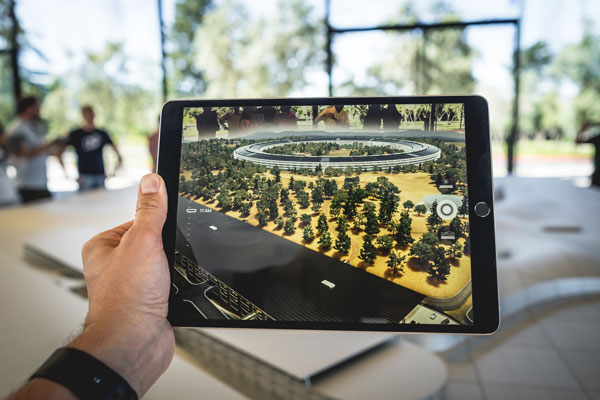
The listing shows with no information available about it. Also, the ranking suffers because Google doesn’t know what the content is of that page. In the case of Video.Numerologist.com, it was a very important page that was ranking on page one but lower on page one. By tweaking this and fixing that technical issue, that bumps you up to number three or two or something for numerology. It’s a very important keyword for you. That made a big difference. There are a lot of technical nuances that I don’t need to extract all this technical geekery out of you in regards to SEO and so forth. It’s important for our audience to understand that one small change can make a huge difference to your traffic and the results that you get.
We can’t take any credit for that. That was a very good find on your part.
It wasn’t obvious because the robot.txt file on your website was totally fine. We didn’t have any disallows or anything that was preventing Googlebot from accessing your content. It was on that third-party site. Let’s talk a bit more about SEO and where that fits into your marketing strategy. In the early years of your business, you didn’t get a lot of SEO value. You were more focused on the ad and the paid media side of things and doing promotions with affiliates and so forth. It’s nice to have any SEO traffic and any organic traffic came in but it wasn’t a priority. What was the thought process around not making it a priority, but then changing strategy and making it a priority? That’s when you reached out to me. What was the evolution of the thought process there?
When the business grew, it was the realization that we are growing and I see that good rankings are a key part of it. They do add to the value of it. They are a long-term thing. The great thing for example about Facebook or Google Ads is that you can put an ad up in theory, assuming that your site converts. You can be making money overnight. Whereas with SEO, it’s not like that. However, the other side of that is that we knew we have to stop spending, you stop selling on those ad platforms, where SEO just keeps going. It’s a different kind of ROI.
It reminds me of the definition of an asset from the book, Rich Dad Poor Dad. Robert Kiyosaki defined an asset as something that puts money in your pocket month after month. A liability is something that takes money out of your pocket month after month. The house you live in typically is a liability because it’s costing you money. Whereas if you buy a house and then you rent it out, that’s an asset because it’s putting money in your pocket every month. I see SEO as an asset that continues to pay you month after month after you’ve built that core base because you’re going to get some organic traffic from having a good link profile that you’ve built up over the course of the last couple of years or whatever. If you take an entire year off from link building, you’ll still get benefit even though you’ve stopped. That refers back to what you were saying about it being an asset that continues to reap the rewards for you even after you’ve stopped putting the budget towards it.
I do like the analogy of a house. SEO does require quite a commitment to do it properly. However, if you were to compare it to the value of a house and the rent that you can get from that house, I think it’s a much better investment.
I know there are companies that specialize in finding these investment opportunities like real estate but in the virtual world.
A brand is so much more than just a logo. It is a promise delivered or fulfilled. Share on XI know from an SEO perspective, we’ve had some growth in terms of organic keywords and organic traffic and so forth as a case study that we published on my site on StephanSpencer.com. What do you think is the future for Numerologist.com in terms of organic? Is there going to be a big content push or link building push or focus on some machine learning AI type thing? Maybe expanding into other genres that are complementary to numerology, maybe Tarot or whatever. Where do you see yourselves heading over time?
It’s a bit of a vague answer, but pretty much all of the above. We’ve also been developing some mobile apps, which are augmented reality-based. It’s been a lot of fun. That will be coming out soon. It’s essentially done, we just need to release that. It’s an iPhone app. I’m sorry android users for the time being. It effectively uses your phone, almost like a looking glass through to a physical table that you’ve got in the room. The Tarot cards appear on the table and you touch the cards by touching them on the screen on the table even though in the real world, the cards don’t exist but the table does. We’re having a lot of fun with that.
There’s also a numerology one in the pipeline and astrology one too that effectively projects almost like the universe into your living room. You can walk around and see the various constellations. Certainly, R&D is a major focus and the whole user experience. That’s the big thing that I like to focus on. It’s because of that user experience that we’ve been getting these random acknowledgments from celebrities and stuff, which has helped our business as well. All of the above content marketing, the various social media channels, the Pinterest and so forth.
You have a Pinterest presence. You’re on Instagram, Facebook and Twitter. What are the primary social networks that you’re focused on?
They’re the main ones, Instagram. We’ve got a strong Facebook following. There are about 700,000 followers at this stage.
Are you doing Instagram ads as well as Facebook ads?
Yes, we are through an affiliate partner. We have a special relationship and technically they are an affiliate. However, we work very closely because they had been an asset and stuff. I’m interested in how we’re going to market the augmented reality yet. I think that’s going to be a very cool thing to put in our ads where we can have a video of somebody holding up their phone and you’ll be able to see them. You’ll be able to see the phone. You’ll be able to see the table and you’ll be able to see the cards effectively projected onto their table. I think that could make a very interesting ad, particularly on Facebook and Instagram.

Are you looking at doing PWA or Progressive Web Apps in addition to regular mobile apps?
I have to say no because I’m not familiar with PWA.
Progressive Web Apps are web browser-based. Somebody in their Safari browser could go to the URL for your mobile app that is the web app version of it. It’s not going to be as slick and as functional as your regular mobile app, but you could replicate quite a lot of functionality with it. You can have it store or cache some of the data in the browser, so it doesn’t load slowly. It’s pretty speedy like a mobile app. You can make it search engine-friendly to get the content indexed that’s inside of the progressive web apps. That’s something you might want to look into. I’m happy to give you some more details on that.
Thank you. Actually, we are, I just wasn’t aware of that terminology. One of the things that I wanted to look into next is web VR because there is a framework out there for that. It would be effective to take our augmented reality apps and see if we can do it in the browser on the phone. Downloading an app can be a bit of a nuisance, but if you’re right there on the site and you can do augmented reality on the phone, then that’s a way cooler experience. I think it’s going to become more and more practical and feasible and maybe even inevitable as time goes on. Throughout the US, 5G nodes are being installed ready for a roll-out. We’re going to have about 100 times the internet speed of what we’ve got now on our devices. I think that’s going to be a game-changer.
The augmented reality and virtual reality, VR sides of things are definitely going to become huge. It’s already starting to take off. Those of us who are playing around with devices like the Oculus Rift and so forth are already getting a taste for that, but it’s going to come really fast and you need to be on top of this coming new trends. I was at the Abundance 360 Conference that Peter Diamandis puts together and he shows all the latest cool tech and where things are heading. He brings in all these amazing futurists and stuff. You’re part of Abundance Digital now.
Thanks to your recommendation. It’s incredible.
Have you seen those sessions on AR and VR?
I just signed up and I’ve seen some of them. It is interesting to see what’s in the pipeline. Even later this 2019, they have headsets that are coming out that are going to be superior not just in terms of wireless, but also superior optics. It’s been good because I’ve had the Oculus Rift for a couple of years now and I’ve been anxious to experience the next level. We’re still at a stage where texts are not particularly readable on those devices, but that’s going to change very soon.
If you want to have your mind expanded, read a book called The Diamond Age: Or, a Young Lady’s Illustrated Primer. That will blow your mind. It’s an incredible book. It’s one of my favorite books. If you’re familiar with Steve Jurvetson, he mentioned at an event that that book is his favorite book. I had to get it. It’s actually fiction. I’m not usually reading fiction, but I love that book because it’s based on the coming age of nanotechnology and how we’re going to interface with things like VR and AR. There are these utility clouds that are nanobot swarms that can create what looks like a human or a pet or whatever and you can interact with it. You could be in a virtual world three-dimensionally. Then they can have actors on the other side of the world that are providing the interactivity. It could be like watching a movie that you can engage in. You can be the hero and then the actors are responding to what you’re doing. It becomes a choose-your-own adventure. That’s one of the examples of how things are going to be vastly different in the next ten or twenty years compared to what we’re experiencing now with going to a theater and sitting and eating popcorn. It’s a three-dimensional experience with your glasses on. We’re at the very early stages of a full immersion type of experience. It’s pretty cool.
It’s ridiculous and with Moore’s Law, it’s not as far away as we think.
There’s a book by Ray Kurzweil called the Singularity Is Near. I also recommend that you get to wrap your head around all the coming technology, and when it’s due to hit and what the implications will be. By the time we get to about 2050 or maximum in 2065, we will get to what is referred to as the singularity. All known laws of the universe in terms of evolution, especially human evolution, will break down and we won’t be able to predict where things are going to be after that. It’s like a quantum singularity being a black hole where all the known laws of physics breakdown inside of it, once you’re past that event horizon. Imagine an evolutionary singularity where we have no clue what’s going to be in store for us. It’s all bets are off and that’s coming in many of our lifetimes.
It’s an exciting time to be here.
It’s exciting and scary. Two sides of the same coin, but it certainly provides a lot of opportunities. You have to be thinking about five years ahead though and not assuming that we’re going to have a linear progression.
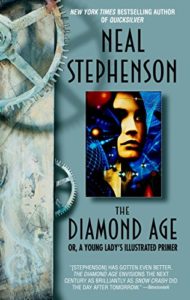
I cannot wait to get rid of these cell phones. I might be showing my age here. I am at least ten times maybe twenty times more productive on a desktop computer than I am on the phone. I don’t know, clumsy thumbs, call it what you will, but the multitasking, the productivity on the phone is for me at least a very small fraction of what I can achieve on a desktop. I can’t wait until phones go away and we’ll have more of a desktop experience, but of course much better and a mobile device full factor or more likely a glasses-based. That’s my personal wish and I don’t think it’s that far away.
We’ll be able to extend our arms and fingers and start manipulating virtual space and achieving whatever we could have done on a laptop probably quite a lot faster. Talking to our device as well because that’s much more efficient and fast than typing. The typing maximum speed for many of us is probably 60 or 80 words a minute. You can rattle off a lot faster through speech what your instructions are for the computer or your messages for your staff or whatever. That switch from Graphical User Interface or GUI to this Linguistic User Interface, where you’re speaking to your technology more than you’re typing on it, is going to be a huge game-changer. It’s bigger than the change that happened when we went from text-based DOS, UNIX terminal Window typing to a graphical user interface. Imagine even bigger tectonic shift when we switched to the LUI, which is probably only a couple of years away.
I can’t wait until the technology is so sophisticated that it will be able to recognize a New Zealand accent.
I have no problem with it. I lived in New Zealand for almost eight years, so I’m used to it.
Using Siri on the phone is an interesting experience. It gets it right most of the time, but still a lot of room for improvement there.
Let’s switch to the idea of working with influencers, celebrities, and super affiliates. You mentioned that you’d gotten some celebrity call-outs because you have such a cool user experience that’s very distinctive. Who would be some of the celebrities that have given you a shout out?
First of all, it’s cool. However, we always want to make it cooler. There’s a lot of stuff in the pipeline and we certainly don’t want to risk what we’ve got now. We’ve got to be playing with a whole lot of other stuff which will capitalize on the faster bandwidth that we’re soon going to have. To answer your question, one of the most awesome ones was Tyrese Gibson. He’s the actor out of Fast and Furious. He was so blown away by our user experience that he posted three different videos on his Instagram. He changed his Instagram link in his bio to our link so that all of his followers could check us out.
We couldn’t ask for a better endorsement because you see the video, you see him and you see his friend in the room on his phone checking out our site. He’s saying, “This is not a spam. I’m not getting paid for this. I don’t know who these people are. All you do is enter your name and your date of birth to this web page and it will mess you up.” Then we had another one. It was a friend of the Kardashians that said, “We love Numerologist.” Unfortunately, it melted down our servers, the influx of traffic. We had a scaling system, but it was a system that took a second or three to scale up. In response to that, now the whole system will scale up within microseconds or milliseconds. If we will ever have an extreme surge like that, the site wouldn’t go down for a bunch of users.
You did a big technology restructuring. Do you want to share any thoughts or experience around that and what you learned or what platforms you ended up utilizing?
A lot of companies do very well by first assembling the team before they even know what they're going to do. Share on XI’m not that qualified to talk about it. We’re certainly utilizing Kubernetes a lot.
Kubernetes is something that many of our audience probably don’t even know exists or they’ve never even heard that word. That’s a pretty robust powerful platform that some of the biggest brands and internet companies in the world are using.
What we want is the scalability because the more we focus on the user experience and the more your audience focus on their user experience, the more likely we are to get these random shout outs that generate an avalanche of traffic. They’re not much good if your server can’t cope. It’s about instant scalability about sporting off new instances, if that makes sense to people, as fast as possible, so that your systems can cope with a sudden and unexpected influx of traffic.
It’s a major investment to migrate to Kubernetes, right?
Certainly and it’s taking quite a while. However, there are also cost savings associated with it.
It’s like migrating to SAP as your ERP system or something. It’s a major initiative.
It’s been happening for quite some time. I, unfortunately, can’t take any credit for it. We have an amazing technical team. Any technical questions, we’d probably have to ask them.

Whose idea was it to go with Kubernetes? Was it yours or somebody on your tech team?
I believe it was someone from the tech team who heads that.
One of the things that have been very successful for you has been to do promotions around certain holidays or time periods, special dates and things like that. Can you fill us in a bit about how that all works?
A lot of it is tied to numerology. Our biggest promotion of the year is the New Year promotion. That goes well for a couple of reasons. First of all, it’s the New Year and people are looking for a new direction and they’ve got New Year’s resolutions. They want to know what’s in store for the year ahead. Secondly, from a numerology perspective, certain numbers change with the New Year. You get some of your numbers changed. There’s something called the personal year in numerology that’s calculated by using your date of birth for example and combination with the current year. The digits in that current year change, in other words, on January 1st, then certain aspects of their chart change. We baked that into the personalization of our promotions as we will talk to the person and we’ll say, “We see you’re entering a personal year based on your date of birth.” The more we can personalize, the better it is. That’s the thing that I’m very hot on is user experience and personalization. We personalize more than anybody I know.
What would be a typical numerology site that doesn’t personalize as you do?
Just go to Google and type in numerology and click on anything that does not say Numerologist.com.
What’s the experience like? It’s just click here, put in your date and then click here to download a PDF of your reading or something? Is it just flat webpages with calendars and things like that?
Culture has a lot to do with assembling a team. We do want to have a sense of family. Share on XIt’s generally flat web pages. Most people do sell PDFs. I don’t want to criticize them because we did that ourselves at one stage, black and white PDFs with no real concern for design or aesthetics. We have spent years creating these reports. I didn’t do them and I’m not blowing my own horn here, but I will say that they are beautiful. We spent so much time making them. First of all, the content, that’s got to be the first rate, but the presentation is out there to match that content. I think that’s where a lot of sites fall down is they do have pretty good content but zero regard for presentation. They’re ugly black and white reports and that’s pretty much it.
It’s not just user experience, the brand presentation is very important to you and to the company. You make a point of it to have rich design experience. I’m guessing you have things like mood boards and brand guidelines and that sort of stuff.
I will say something funny which might be interesting to your audience. I was very much a direct response copywriting guy. For me, the copy was king and design was unimportant. Don’t get me wrong because the copy is tremendously important. I used to laugh at people that would go on about their logo, for example, and not give much precedence or priority to the other things, the offer, the copy, and all that stuff. Having said that, we spent a very long time, I don’t know if I want to say it, but it was probably the better part of a year coming out with this company logo because we rebranded.
What was interesting there was I did a lot of ad split testing just to see if a logo on an ad would affect the click-through rate and that silly little logo doubled the click-through rate. That was crazy. I had no idea. I thought it might have given us a 10% or 20% increase, but not doubling. I think that if you are looking at designing or redesigning a logo, do take it seriously. It’s part of the brand experience and the logo has to tie in with the other stuff. However, I did not give it nearly as much weight as I probably should have. We’re very happy with the look and feel that we’ve got now. Having said that, the whole side is getting a major facelift in the next few months.
You’ve hired a good designer, Greg Merrilees, it’s Studio 1 Design. I love Greg and his team. They’re doing some amazing stuff for you and they’ve done some amazing stuff for you in the past. They’ve done a lot for me over the years. We’re still working together. Tell our audience about mood boards and why they’re important in brand style guides and that sort of thing.
Just because someone new joins the team, they get to create things that are all in alignment so that you don’t have what we probably once had. It is a bit of a hodgepodge where certain creatives look completely different and don’t look in place. Effectively, uniformity, I suppose is the first one.
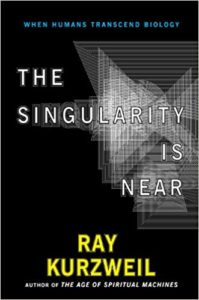
It’s getting everybody on the same page. A brand is so much more than just a logo, it is a promise delivered or fulfilled. A brand is a promise. If your promise is to provide the best user experience, the best reading, the best foresight into where your life is heading, how you can shape it and shift it into something even more abundant, fulfilling and awesome, then everything you do plays into that brand. It’s not just your logo, your layout and so forth. Even the culture of the company, the kinds of tools and apps that you build and so forth, it all feeds into the brand.
For sure, every touchpoint.
What are some touchpoints that we didn’t talk about that you want to maybe bring up?
We’re redesigning our autoresponder series. It probably doesn’t make sense for your audience to look at it now. They can see how it is now, but effectively I want to create Photoshop quality images that go right in the email that are personalized. We do have personalized images in the emails, which is something that very few people do and they look okay. They’re not quite up to par with the rest of the design because they’re personalized. The question was, “How can we create something that’s magically beautiful but also personalized, almost so compelling that people can’t stop clicking on it?” That’s the goal anyway.
When is that going to go live?
I’ve sorted out the technology behind it. We do have some artists, however, they are busy with other stuff. It’s a matter of getting the bandwidth from the artists to do the actual design and the concept. Maybe sometime in 2019.
The autoresponder series, are you doing more trigger-based emails based on things like special dates coming up that you know from them filling out their numerology information? Is it more just email blasts or a weekly newsletter thing?
All of the above and yet we do need to do a lot more of that trigger-based thing. Mostly it is around a global calendar of events, the phases of the moon, Mercury retrograde, which is totally astrological but not numerology. However, we do touch into those areas. We certainly take notice of those dates.
The email marketing, some is trigger-based, some are just email blasts and a lot of it is based around special dates and astrological events and things like that. Where do you see the growth opportunity with email marketing beyond improving the imagery and the personalization of those images?
This is something that I’ve been thinking about for a long time. We need a system and maybe we need to design it. We have created the user experience, the video on the fly, that each person gets a completely unique email that is generated on the fly. Technically, it should probably not be that hard. It’s a matter of getting around to it when you’ve got lots of other things to focus on.
You have so many things in the cooker at once. I don’t even know how you keep track of all of it. You’ve got an amazing team.
The smartest person hires people that are smarter than themselves. Share on XIt’s all credit to my team.
How did you find all these great people? They are top notch. The team is everything. I remember reading Good to Great book where the discussion around getting the right team members on the bus and in the right seats makes all the difference. You could hire a great team and have a mediocre idea or a mediocre product and you can still get funded. If you’ve got an amazing product or amazing idea and a mediocre team, you’ll never get funded.
A lot of companies do very well by first assembling the team before they even know what they’re going to do. It’s crazy but that’s true and to answer that question, culture does have a lot to do with it. We do want to have a sense of family. We have had people come to us and say, “We want to join you,” which is nice.
You don’t just have staff that is contractors or employees, but you have companies come and join your team too as almost like they’re embedded in your team but they’re a small agency or a small boutique firm.
Yes, we do. The feeling is that they are part of the company. Even if they had their own business and they sometimes have other clients, we convene in the US and we have these wonderful get-togethers. More often than not, we have this very nice family feeling.
I’ve met a number of the team, some virtually and some in person and they are all top notch.
My goal is to make myself the weakest link and I think I’m getting there.
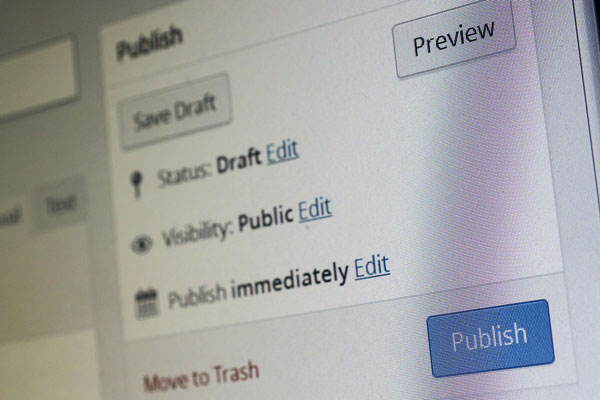
The expression that if you’re the smartest person in the room, you’re in the wrong room.
I’m very blessed in that respect.
I totally am on board with that concept. I think that’s the way that you grow a business and build an amazing life too for that matter.
There’s another saying something like, “The smartest person hires people that are smarter than themselves.”
Another aspect to your online marketing that I think you’re going to be expanding upon is podcasts because you’re on a podcast now and you have a podcast. What are you doing with your podcast and where do you see this potentially heading?
We have a number of contributors who help us with our podcast. They create the content and we wrap it up and publish it. That’s been pretty good and I’m very grateful for all of these contributions. We want to add to that by finding notables and related industries. We’ve got a numerology guy. He’s super qualified in astrology. It’s hard to imagine how difficult it is to get accredited in astrology. People think it’s easy and I’ve got to be honest, it’s too hard for me. I’ve looked at it. You can get software programs that do all the hard work, but to actually become an accredited astrologer requires years of work. You’ve got to pass a ton of exams. There are very few of them and we’ve got access to that caliber of people. To interview people of that caliber and see related fields could add a lot of value to our subscribers.
There’s a big difference between content, whether it’s on a podcast, blog, article, library or whatever that. It’s ephemeral because it’s about something that’s happening this month or this week, it’s Mercury in retrograde or whatever and stuff that is timeless. Timeless advice around personal development or seizing the opportunity, following your dreams and that stuff. You can get a lot of SEO value and ongoing benefit in other ways from more evergreen content than from an ephemeral content, but there’s a trade-off. Because if you only do evergreen content, you’re going to miss out on things that are important of the moment and that’s a critical aspect to numerology. There’s something happening this week, it’s an astrological thing or it’s 12-12-12 or whatever.
We want to be able to cater to those timely events to be able to give a monthly forecast. At the same time, I think we’re probably focused a little too much on that side because nobody is interested in checking out last month’s forecast or last years for that matter.
With Marketing Speak, a huge percentage of my downloads and listens are in the back catalog, in the old episodes. There is still plenty of interest and activity with the newest episodes, but if you were to take away all the back catalog, traffic and listenership, that would hurt. Yet with your podcast, because it’s so focused on what’s happening this month or week or whatever, it’s probably pretty unlikely you’re going to get a lot of back catalog traffic for the podcast.
It’s very much so. That is something that we do need to shift.
If you have to pick one particular channel of podcasting or a YouTube channel or Facebook or Instagram or Pinterest or Twitter, which channel would you pick and why?
Probably we need to take our content marketing to the next level because that is the thing, I think more than those other initiatives that you talk about that will get us up to the rankings in Google. YouTube is related to that. That is something that we also probably want to address. My very vague answer would be all of the above but I think first and foremost, probably content marketing, to create compelling pieces of content that are not ephemeral. They will be relevant a few years from now.
That’s the engine for link building. If you have remarkable content that is evergreen and super valuable and worthy of links, you’re going to get a lot of shout outs on people’s blogs and in their resource lists and so forth.
That reminds me of Seth Godin’s book, Purple Cow, to be remarkable. That has been our major focus to have our whole user experience as remarkable as we can make it. Because of that, some very influential people have remarked on it, which is cool. However, there’s always another level. We’re always looking to improve and become more remarkable.
I love Seth Godin and I love the Purple Cow. He’s got a book that’s fantastic as well, This Is Marketing. I’ve had Seth on this show. Have you listened to that episode?
No, I will because you have this back catalog of relevant content.
For our audience, if you haven’t already checked the Seth Godin episode, that is a must. It is incredible. If there’s something I should have asked you but I didn’t, maybe you could share that with me and what your answer would be for our audience.
My overall philosophy comes back to those two words, user experience. A lot of people give that lip service, but to sit down and think how good can we make this for our users and not focus so much on how much stuff can we sell our users. We want to make the experience not just great for our customers but for our visitors, whether they buy from us or not. It’s not a sales funnel as a lot of people talk about in the traditional sense. We want to give people as much choice as possible. For example, they get the option to enter their email address for follow-ups and for the reading that they experienced to be sent to them. It’s completely optional so they can proceed without doing it if they want to. Giving the users the most control over the experience possible and also the best experience possible.
It boils down to adding massive value. Regardless of whether they decide to pay you money or not, you’ve made a difference in their lives. They’re going to share that with friends, family and people that are in their network.
That phrase, “Moving the free line,” which means giving people a ton for free. They think, “If I’m getting this much for free, what is it going to be like if I buy something?”
What Frank Kern calls, “Giving results in advance,” is another core concept. If you want to teach somebody how to play the guitar for a price, then how about you teach them how to play the F-chord for free and then they feel successful, masterful and appreciative. They’re much more inclined to buy the product then. If people wanted to follow you on social media or if they wanted to check out the Numerologist site, where should we send them to? I know the Video Sales Letter, Video.Numerologist.com has been mentioned several times, but is there anywhere else we should send them?
That is the main place. They can go to see the main website at Numerologist.com and that is going to get a facelift soon. It’s the video that will differentiate us and probably be at the most interest to your audience, to sample the user experience for themselves.
Thank you, Blair, and thank you to our audience. We’ll catch you on the next episode of Marketing Speak.
Important Links
Connect with Blair Gorman
Apps/Tools
Books
Business/Organization
Film
People
Previous Marketing Speak Episode
Your Checklist of Actions to Take
- Give my customers what they want quickly by making sure my website loads fast because no one wants to wait around for a website to load.
- Learn more about Google’s AMP or Accelerated Mobile Pages and how it can help me get the most out of my website.
- Go to AMPProject.org or AMP.dev to check out what AMP is like and explore it – see who’s used it and what it consists of and determine whether it’s applicable for me.
- Try Chrome’s experimental version called Canary which has a feature called signed exchanges or web packaging, a feature that enables publishers to safely make their content portable while still maintaining the content’s integrity and attribution.
- Utilize the AMP plugin for WordPress that has the option to produce native AMP which makes the makes the pages run faster. Access it by going to AMP-WP.org.
- Check out the WordPress WooCommerce theme that is native AMP by visiting the demo site, Accelerate.AMPPublisher.com.
- Download the device emulator for mobile devices or tablets from the Developer Tools menu on Chrome. Choose my phone’s simulator scenario from the drop-down menu.
- Use service worker to do push notifications on my website as apps can do. Also start offline content so people can view my content or look at my products even when they’re offline.
- Check out other companies using progressive web apps such as Superbalist so I can learn how they work or operate. Also look at other sites that are AMP and see if they match with what I’m looking by trying it out on a simple page that’s easy to convert.
- Connect with Ben Morss, Developer Advocate at Google, on Twitter @BenMorss, to know more about AMP or to see what he’s currently up to.

About the Host
STEPHAN SPENCER
Since coming into his own power and having a life-changing spiritual awakening, Stephan is on a mission. He is devoted to curiosity, reason, wonder, and most importantly, a connection with God and the unseen world. He has one agenda: revealing light in everything he does. A self-proclaimed geek who went on to pioneer the world of SEO and make a name for himself in the top echelons of marketing circles, Stephan’s journey has taken him from one of career ambition to soul searching and spiritual awakening.
Stephan has created and sold businesses, gone on spiritual quests, and explored the world with Tony Robbins as a part of Tony’s “Platinum Partnership.” He went through a radical personal transformation – from an introverted outlier to a leader in business and personal development.

About the Guest
BLAIR GORMAN
Master Numerologist, NLP Master Practitioner, Bachelor of Science (with Honours)


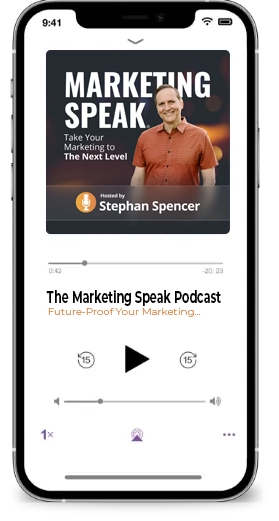





Leave a Reply